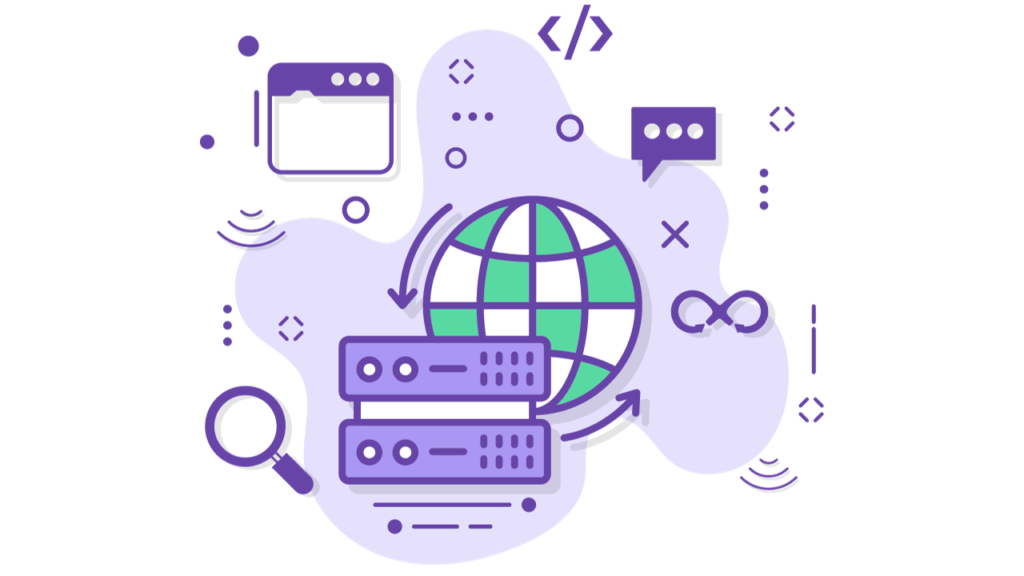The Internet is a vast network filled with information, services, and potential threats. Whether you’re concerned about your online privacy or looking to bypass geo-restrictions, proxies and VPNs offer valuable solutions. But what sets them apart, and which one is the right choice for your needs? In this comprehensive guide, we’ll delve deep into the world of proxies and VPNs, comparing their features, benefits, and drawbacks to help you make an informed decision.
Proxies: Unmasking the Basics
Proxies, short for proxy servers, act as intermediaries between your device and the internet. They serve as a gateway that relays your requests to websites and online services, masking your IP address in the process. Think of proxies as a middleman that conceals your identity while interacting with the digital world.

Key Features of Proxies:
IP Masking: Proxies hide your real IP address, making it appear as if your requests are originating from a different location.
Access Control: Some proxies allow you to access geo-restricted content by routing your traffic through servers in specific regions.
Speed: Proxies often offer faster speeds than VPNs because they don’t encrypt your data to the same extent.
But here’s the catch: Proxies generally lack encryption, leaving your data vulnerable to prying eyes. They are suitable for tasks like bypassing content restrictions or enhancing download speeds but may not provide robust security.
VPNs: Deciphering the Essentials
On the other hand, VPNs, or Virtual Private Networks, are comprehensive solutions designed to fortify your online security and privacy. They reroute your internet traffic through secure servers, encrypting it in the process. VPNs offer a holistic shield for your digital presence.
Key Features of VPNs:
Encryption: VPNs employ strong encryption protocols, ensuring that your data remains confidential and secure.
Anonymity: Your IP address is concealed, making it nearly impossible for anyone to trace your online activities back to you.
Security: VPNs protect your data from hackers, especially when using public Wi-Fi networks.
Access to Restricted Content: Like proxies, VPNs can also help you access geo-blocked websites and services.
Also See: Forward Proxy vs Reverse Proxy: Revealing the Differences
Proxies vs VPN: A Detailed Comparison
Let’s dive deeper into the realms of proxies and VPNs to understand their nuances better.
1. Security
Proxies: While proxies can hide your IP address, they don’t offer the robust encryption that VPNs do. Your data may still be vulnerable to eavesdropping and cyber threats when using a proxy.
VPNs: VPNs provide a secure tunnel for your data, encrypting it from end to end. This high level of encryption ensures that your information remains safe from malicious actors.
2. Anonymity
Proxies: Proxies provide a degree of anonymity by masking your IP address, but they may not completely obscure your digital footprint.
VPNs: VPNs offer a higher level of anonymity by not only concealing your IP address but also encrypting your data. This makes it extremely challenging for anyone to trace your online activities back to you.
3. Speed
Proxies: Proxies are generally faster than VPNs because they don’t encrypt your data to the same extent. This makes them suitable for tasks that require speed, such as streaming or gaming.
VPNs: VPNs, due to their encryption, may result in slightly slower internet speeds. However, this difference is often negligible, and many premium VPN services offer high-speed connections.
4. Privacy
Proxies: Proxies provide minimal privacy as they don’t encrypt your data. While they can hide your IP address, your online activities are still visible to your ISP and, potentially, to the proxy service provider.
VPNs: VPNs offer a high degree of privacy. They ensure that your online activities are encrypted and hidden from prying eyes, including your ISP.
5. Use Cases
Proxies: Proxies are suitable for tasks like bypassing geo-restrictions, enhancing download speeds, and basic web scraping. They are often used in scenarios where anonymity and security are not the primary concerns.
VPNs: VPNs are the go-to choice when privacy and security are paramount. They are ideal for secure browsing, torrenting, accessing blocked content, and protecting sensitive data.
6. Device Compatibility
Proxies: Proxies are relatively easy to set up and can work on a variety of devices, including computers, smartphones, and even some routers.
VPNs: VPNs are also compatible with various devices, and many VPN providers offer dedicated apps for easy installation.
7. Setup Complexity
Proxies: Setting up a proxy is generally straightforward, involving minimal configuration. However, the level of anonymity and security may vary based on the proxy type.
VPNs: VPNs can be easy to set up with user-friendly apps, but advanced users can configure them for specific needs. This versatility makes VPNs a robust choice.
8. Cost
Proxies: Some proxies are free, while others require a subscription. Free proxies may come with limitations, such as slower speeds and fewer server options.
VPNs: VPNs often come with both free and premium options. Premium VPNs offer more features and better performance but come with a subscription fee.
9. Server Network
Proxies: Proxy server options can be limited, and their performance may vary. Free proxies may have even fewer server choices.
VPNs: VPN services typically offer a vast network of servers in various locations worldwide, providing users with options for fast and reliable connections.
10. Legal Implications
Proxies: Depending on your location and how you use them, proxies can have legal implications. Using proxies for illegal activities can result in legal consequences.
VPNs: VPNs are legal in most countries and are widely used for legitimate purposes such as online security and privacy protection. However, misuse can also have legal consequences.

Which One Is Right for You?
The choice between proxies and VPNs depends on your specific needs. If you require strong encryption and maximum privacy, a VPN is the better option. However, if you need speed and anonymity for certain tasks, a proxy might be more suitable. It’s also possible to use both in tandem for added security, although this can be more complex to set up.
Conclusion
when it comes to the choice between proxies and VPNs, it’s essential to consider your specific needs and priorities. Proxies offer simplicity and can be great for basic online privacy, but they may not provide the same level of security and anonymity as VPNs. VPNs, on the other hand, offer a comprehensive solution, encrypting your entire internet connection and protecting your data from prying eyes. If you value both security and privacy, a VPN like Nextdoorsec could be the ideal choice. Nextdoorsec, a leading cybersecurity firm, offers top-notch VPN services that can safeguard your online presence effectively, ensuring peace of mind while browsing the digital landscape.
FAQs
1. Which is better, proxy or VPN?
The choice between a proxy and a VPN depends on your needs. VPNs offer more comprehensive security and anonymity, making them better for privacy-conscious users. Proxies are simpler and suitable for basic tasks.
2. What are proxies used for?
Proxies are used for various purposes, including accessing geo-restricted content, improving online anonymity, and bypassing internet censorship. They act as intermediaries between your device and the internet.
3. What is better than a VPN?
There isn’t a one-size-fits-all answer to what’s better than a VPN, as it depends on your requirements. For enhanced security and privacy, options like Tor (The Onion Router) or using a combination of VPN and proxy can be considered.
4. Is a proxy slower than a VPN?
Generally, proxies tend to be faster than VPNs since they don’t encrypt your entire internet connection. However, the speed difference can vary based on the specific proxy or VPN service you’re using.
5. What is a VPN proxy?
A VPN proxy is a combination of both technologies. It allows you to route your internet traffic through both a VPN server and a proxy server, offering an extra layer of security and privacy.
6. Is a VPN a proxy?
While both VPNs and proxies serve to hide your IP address and protect your online identity, they operate differently. A VPN encrypts your connection, while a proxy only reroutes your internet traffic through a different server.






0 Comments